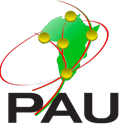MASTER OF SCIENCE AND DOCTOR OF PHILOSOPHY
Program Description
The Geoscience program of PAULESI is composed of the Petroleum geoscience and the Mineral exploration programs both art Masters, M.Sc. and Doctoral, Ph.D. levels
The M.Sc courses run for 4 semesters while the PHD runs for a maximum of 36 months. The availability and acquisition of sound education especially at the tertiary level has remained a mirage to most African Children. The situation is further compounded by the unavailability of quality and globally competitive institutions among the existing ones on the continent. This initiative of the geoscience program within the Pan African University Life and Earth science Institutes (PAULESI) framework is not only timely but necessary.
Program Objectives
The main theme of the PAULESI falls within the framework of the Millennium Development Goals (MDG) and the African Vision 2063. This is more so since the impact of the African economies is expected to be significantly driven by progress in science and technology as is the case with most global economies.
The geoscience program therefore has as its main objective to equip the students through instruction and independent research in the knowledge of the earth sciences, being the foundational science for infrastructure, environmental sustainability and overarching economic development of nations, thus preparing them for the necessary impact expected of them in their various nations.
Mineral exploration
The M.Sc Mineral exploration program is aimed majorly at enabling the students to be sound exploration geologists, economic geologists and being able to appreciate and undertake exploration across the value chain up to where final investment decisions are made on the viability or not of the project.
In order to achieve this, five main modules are focused on. This include:
A basic understanding of concepts and principles of the exploration program. Within this are courses on ore deposit modelling, Regional mettallogeny, fluid phase petrology applied geochronology and applied structural geology. The second module focusses on prospecting techniques and covers such areas as Exploration geophysics, Exploration geochemistry, remote sensing and photo geology. The third module covers concepts of data analysis and integration and concentrates on ore evaluation, and reserve calculation, geostatistics, data management, databases and GIS .it also covers integrated methods in exploration and discovery.
Exploration project management which is a very important aspect of economic Geology covers such areas as mineral economics, resource exploitation and feasibility studies, Environmental Impact assessment/Evaluation regulatory and legislative framework and analysis and contract negotiation A 6 month period for internship in a mineral exploration/production company and project field data gathering all culminating in the production of a dissertation is also an essential part of the training.
The Ph.D students also are made to have sessions with designated experts who guide them as they produce term papers on advanced specialized areas related to their specialization. Three seminars delivery by Ph.D students both for the Petroleum and Mineral exploration programs are compulsory based on their independent research. The first is to assess the project proposals, the second on progress made and the third and final is at the end of the research before the final defense
Career pathways
The program is finally geared towards producing specialists who will be useful and be gainfully employed or become entrepreneurs in geoscience related sector and /or industries
These include exploration companies, whether in the minerals, oil and gas secto or minerals management or governance sectors. The training also affords them to fill the much needed gaps in the academia as lecturers and instructors. Africa needs a lot of capacity development in the minerals industry and this training will help a lot in this direction


